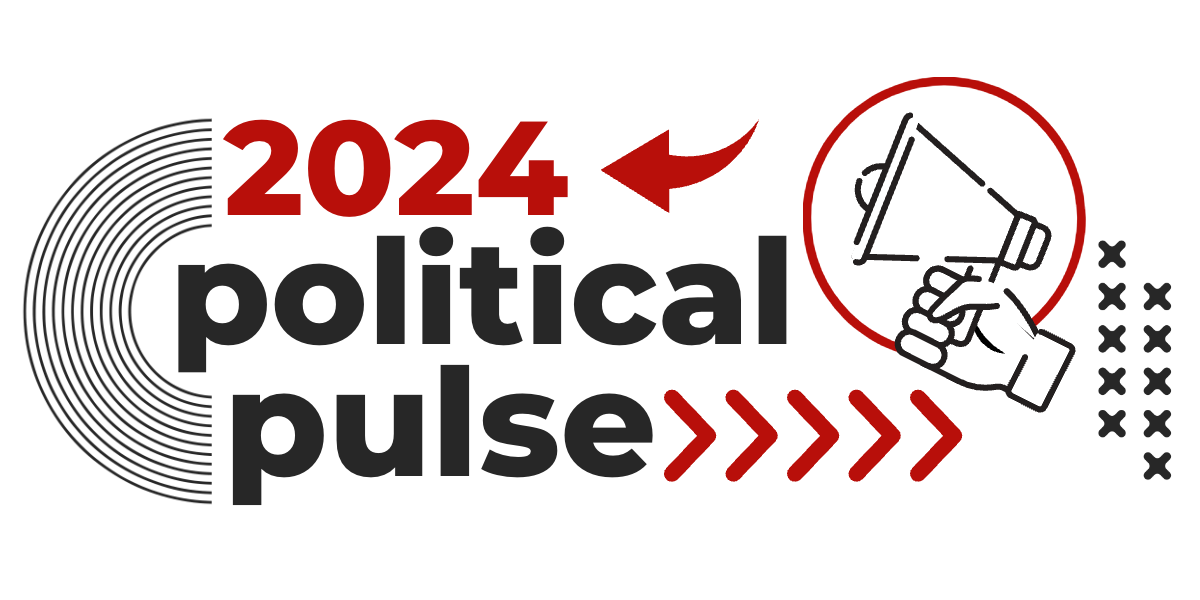DATA POINTS
- 3.7%: The percentage consumer prices rose in September
- 4: The number of months the Coast Guard has recovered remaining debris following the Titan submersible implosion
- 19.5: The average composite ACT test score for the graduating class of 2023; the lowest average score since 1991
- 44: The number of nations who have condemned Hamas and decried its tactics as terrorism
- $2 Million: The price of Ron DeSantis’ recent ad campaign in Iowa
- $65 Billion: The amount of money Americans are collectively spending on “junk fees”
 Check-Marking Pandora’s (Third-Party) Box
Check-Marking Pandora’s (Third-Party) Box
This week, Robert F. Kennedy Jr. officially launched his bid for the Oval Office as an Independent candidate. This announcement is sure to throw a monkey wrench into the expected Trump v. President Biden rematch (barring a meteoric rise of Nikki Haley), but it’s not clear which party should be more concerned about RFK’s decision. Republicans have been quick to attack RFK for the move, indicating a threat that the former Democrat is likely to steal votes from former President Trump in the 2024 race. RFK, when asked whether he would be a spoiler for Trump or Biden, said: “the truth is, they’re both right. . . my intention is to spoil it for both of them.”
Kennedy’s platform is based on what he sees as a “rising tide of discontent” among Americans. He wants to enact “a new declaration of independence” from the media, corporations, and the two political parties. Republicans upset with their party’s decision over the past few years, Democrats who cannot rally behind Biden, or independents who don’t align with either party may be drawn to RFK’s message.
RFK’s announcement succeeds progressive activist Cornel West foregoing the Green Party candidacy In order to pursue an independent tag. No Labels, an up-and-coming centrist movement, could have a candidate in the 2024 race in the coming months as well. Why the third-party attention? Many Americans do not want President Biden or former President Trump to win re-election. Historically, voters say that they want a third-party candidate, but the sentiment rarely translates into voting box support.
Read More at The Associated Press
A Tale of Two Republican Parties
House Republicans are scrambling to choose a new Speaker of the House. Louisiana’s Rep. Steve Scalise, the House Republican Majority Leader, won the party’s secret ballot election by a 113-99 vote spread, but he inevitably dropped out of the race given the fractured House GOP. Republicans are holding a closed-door forum today where at least two candidates, Reps. Jim Jordan of Ohio and Austin Scott of Georgia, will make their case for the seat.
A vote for a new speaker could be called in days or weeks, but neither Republicans nor Democrats are holding their breaths. Even once it is called, all Democrats are expected to vote for Minority Leader Hakeem Jeffries and ten Republicans are expected to vote against or abstain. Republican brass will actively avoid bringing a vote to the floor that will not pass, so they cannot afford to lose more than four members of their party on the vote.
With the majority party swirling in their homemade pandemonium, the House needs to fund the government by November 17 to avert a government shutdown.
Keep Politics Out of It?

Although Democrats are generally more likely to support companies taking a stance on controversial subjects, many believe big businesses should generally avoid the world of politics. And political parties aren’t the only factor: older adults are less likely to support political involvement from companies than their more youthful counterparts.
Despite declining sentiment, businesses remain one of the most trusted messengers for news and information, but finding ways to communicate social goals can be challenging, and if done wrong, lead to public backlash. Thankfully, there is a topic that bridges bipartisan support. 75% of Democrats and 57% of Republicans approve of corporate involvement in environmental issues. Most people spanning both parties also agree that corporations should work toward ending gender and racial discrimination and supporting food security.
The TikTok Time Bomb

The suit stands in line with others that challenge the popular video-sharing platform owned by Chinese parent company ByteDance. Utah’s Attorney General, Brian Reyes, even compared TikTok to “a slot machine that hooks kids’ attention and does not let them go.” The state claims the app is failing to protect children from harmful content, ranging from videos where adults discuss mature topics to videos where people break their bones.
TikTok doesn’t agree. The streaming giant stated the app is doing everything in its power to prevent problems – in their opinion, even more than other platforms. The app has a 60-minute timer and parental controls for those under 18.
Utah was not the first to start a lawsuit with TikTok over similar issues. Nearly half the states have banned the app on state-owned devices.
Rural America – The Land Without Lawyers

Drafting wills, divorce settlements, debt collection affairs, or abuse protection suits are being tried in court without attorneys – oftentimes leaving judges to decide whether they assist parties or remain impartial adjudicators. According to the Institute for the Advancement of the American Legal System, 70% of civil and family cases had at least one pro-se litigant (without legal counsel).
Rural courts now must determine how to encourage attorneys to practice locally or revamp their justice system so litigants can meaningfully self-represent themselves in a rigid system dependent on lawyers. While the Kansas Supreme Court established a committee to solve this issue, more parties will fail to submit elements into evidence, fail to bring the proper documentation, and fight without guidance in courtrooms.
Read More at the Wall Street Journal
The Climate Crisis’ Most Sobering Outcome

By 2050, it is projected that overall yields will drop between 4 to 16 percent, while the hop acid production, which brings the crisp flavor to the carbonated party, will fill between 20 and 31 percent. It’s a race against time for the beer industry, who now need to develop cutting edge methods for growing flowers amid shaky climate patterns.
This is a rough mug to chug for anyone who prescribes to the common anecdote: “a pint a day keeps climate change away.” Are those who don’t like beer in the clear? No. Diageo Plc, the world’s biggest alcoholic spirits company, is already aware of scarcity concerns facing its most precious resource: water. It may be time for the tequila tasters, whiskey whistlers, and vino heads worldwide to stumble into the fight against the climate crisis.
Read More at The Washington Post




 Check-Marking Pandora’s (Third-Party) Box
Check-Marking Pandora’s (Third-Party) Box

